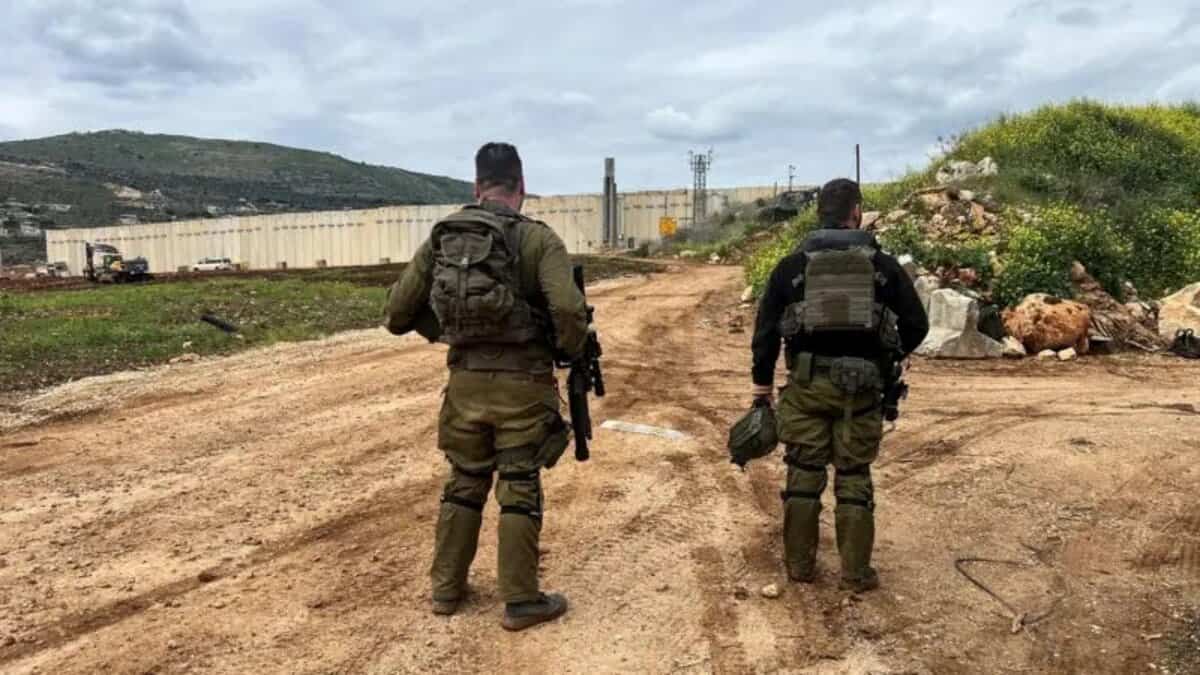
Blida: Israeli soldiers raided a municipal government building in a border village in southern Lebanon early on Thursday, October 30, and killed an employee, Lebanese state media said.
The incident in the town of Blida sparked condemnation by Lebanese officials and a protest by residents.
The Israeli army said in a statement that the soldiers had entered to “destroy terrorist infrastructure” belonging to the militant group Hezbollah and “identified a suspect” inside the building, whom they attempted to apprehend.
It said they had fired to “neutralise a threat” and that the details of the incident were under investigation.
Since a US-brokered ceasefire nominally halted the latest Israel-Hezbollah war last November, Israel has continued to launch near-daily strikes on Lebanon, saying it is targeting Hezbollah militants, facilities and weapons. Its forces have also continued to occupy several strategic points on the Lebanese side of the border.
However, raids by ground forces like the one in Blida are rare.
Lebanese President Joseph Aoun said in a statement that the municipal employee, Ibrahim Salameh, had been killed “while he was performing his professional duties.”
The state-run National News Agency reported that the Israeli forces had entered the village around 1:30 am and stormed the municipality building, where Salameh was sleeping.
Salameh “usually slept in the municipality,” said Tahsin Kaour, a local official. “He heard a noise outside suddenly and went to the window to see what was going on, and they shot him.”
Lebanese officials say Israel’s strikes often harm civilians and destroy infrastructure unrelated to Hezbollah and have called for Israeli forces to withdraw.
Residents in Blida expressed anger toward the Lebanese army and the United Nations peacekeeping force known as UNIFIL, which they said was failing to protect civilians. Residents confronted UNIFIL peacekeepers who arrived in the village Thursday morning and asked them to leave.
“We want the government to protect us, to protect the people, for the Lebanese army to protect us,” Kaour said.
Aoun’s statement said he had requested the Lebanese army to “confront any Israeli incursion” into southern Lebanon “in defence of Lebanese lands and the safety of citizens,” although it was not clear what form that confrontation would take.
Lebanese Prime Minister Nawaf Salam said in a separate statement that Lebanese authorities are “following up to pressure the United Nations and the countries sponsoring the cessation of hostilities agreement to ensure a halt to the repeated violations and the implementation of a complete Israeli withdrawal from our lands.”
The most recent Israel-Hezbollah conflict began the day after the October 7, 2023, Hamas-led attack on Israel, which triggered the war in Gaza.
Hezbollah began firing rockets into Israel in support of Hamas and the Palestinians. Israel responded with airstrikes and shelling. The low-level conflict escalated into full-scale war in September 2024.


